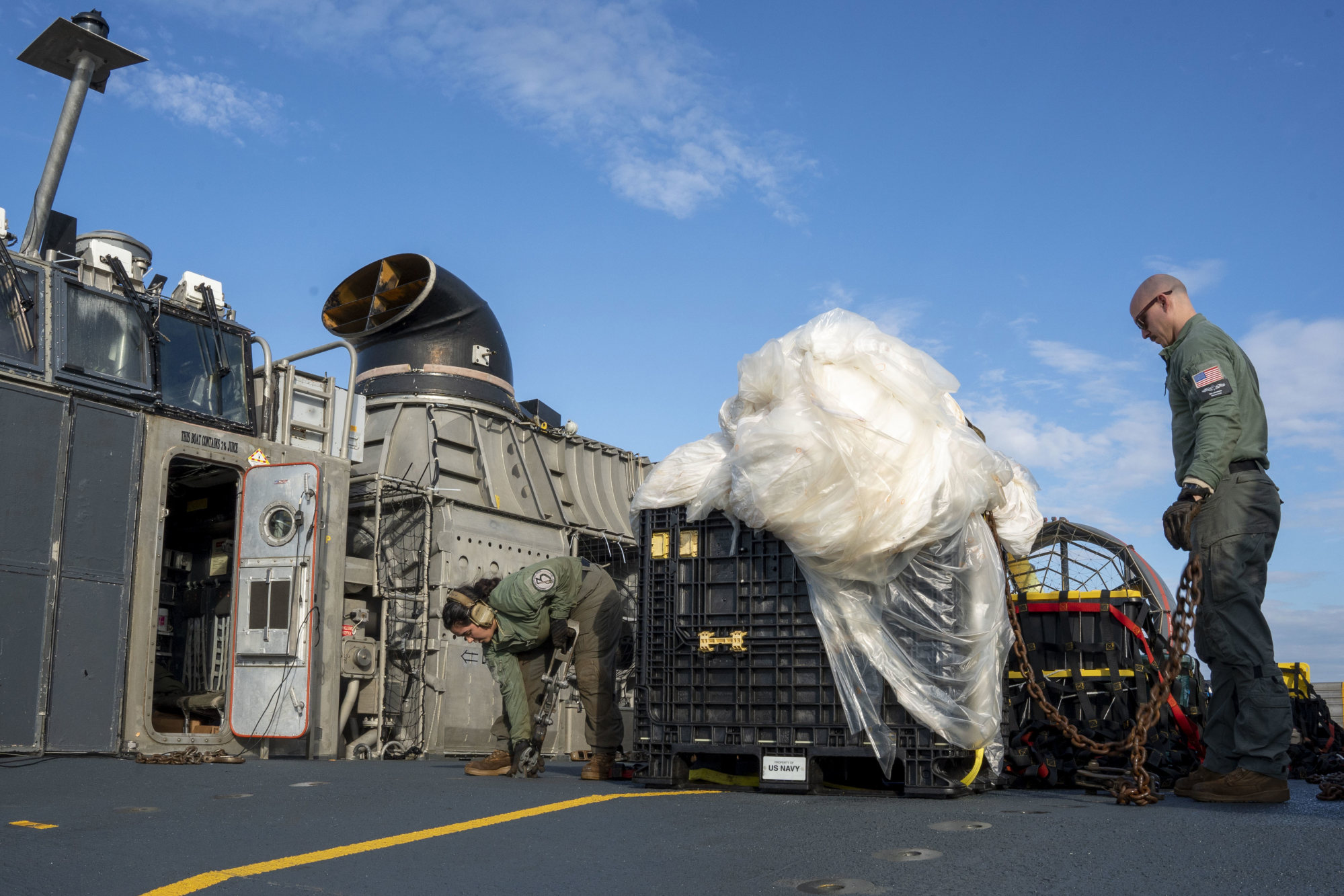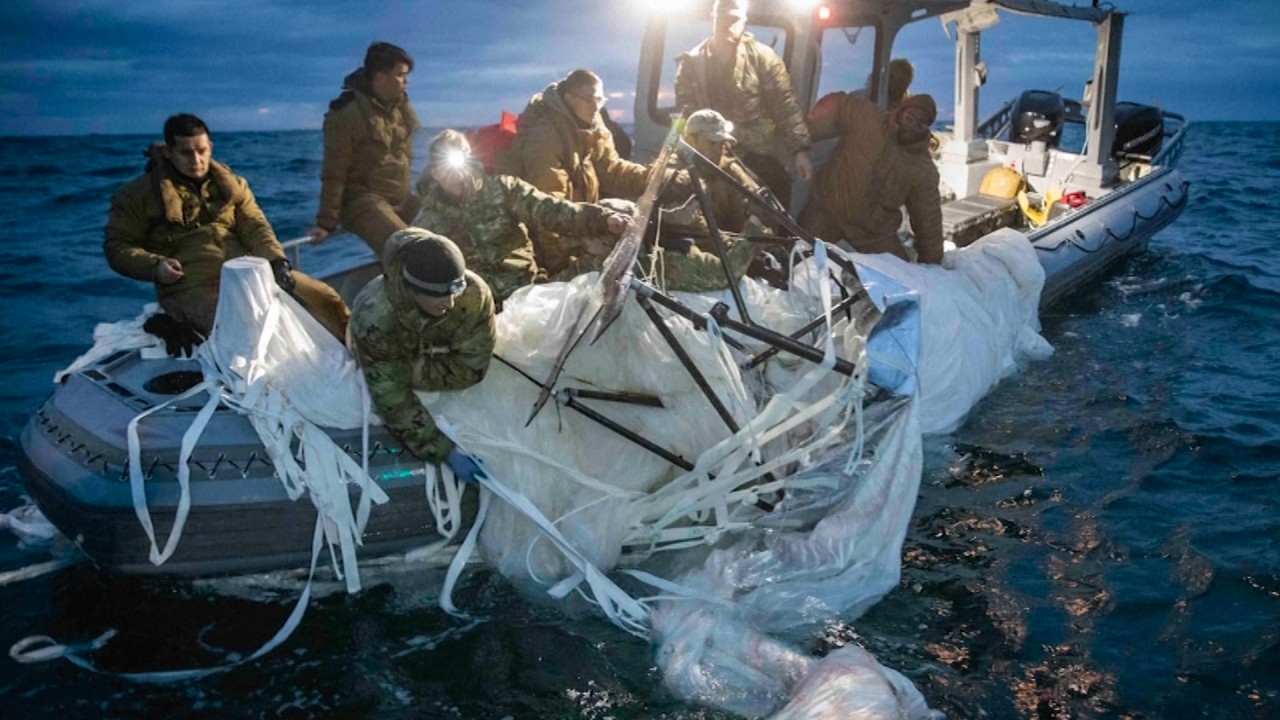
White House laments continuing lack of military dialogue with China
- ‘The lines are open. Unfortunately the military lines aren’t,’ National Security Council spokesman John Kirby says
- Washington had not yet formally asked Beijing to schedule a call between US President Joe Biden and Chinese President Xi Jinping
While US-China diplomatic channels have remained open since a Chinese balloon entered US airspace in late January, one of the most important channels – military-to-military communication – remains cut off, a senior US security official said on Friday.
“The lines are open,” National Security Council spokesman John Kirby told White House reporters. “Unfortunately the military lines aren’t open, and that’s really what we would like to see amended.”
Kirby said that the Chinese had blocked military-to-military dialogue since then-House Speaker Nancy Pelosi visited Taiwan in August.
Washington had not yet formally asked Beijing to schedule a call between US President Joe Biden and Chinese President Xi Jinping, Kirby said, adding that Biden would raise human rights during the call but had no preconditions.
“That doesn’t mean it’s not going to happen, that the president … doesn’t want to talk to President Xi,” Kirby said of the call. “He will.”

Kirby added that the president “never fails” to raise human rights issues and that he believes the US must lead with its values, particularly in foreign policy.
The US says that the Chinese balloon, shot down February 4 off the coast of South Carolina, reportedly the size of three buses, was an airborne espionage vehicle, part of a spy programme extending over 40 countries. China has characterised it as a civilian craft for meteorological observation.
China’s claim could be further challenged as more information emerges about the balloon’s capabilities. Much of the vessel, including its payload, Kirby said, had been recovered and was being analysed by the FBI.
“We learned a lot already from the balloon by surveilling it while it was flying over the country,” he said, adding that its slow, predictable flight path allowed the US to ensure it did not obtain intelligence while crossing over US military sites.
“We’re going to learn even more, we believe, by getting a look at the guts.”
‘No apologies’ from Biden over balloon row, but he vows to keep talking to Xi
Efforts by the two nations to “put a floor” under strained relations were knocked off course by the incident, exacting a diplomatic toll.
Secretary of State Antony Blinken postponed a trip to Beijing, and an attempt by US Defence Secretary Lloyd Austin to reach his counterpart last week was frustrated by a lack of response.
After Biden and Xi met in November in Indonesia, the intention was to stage a “step ladder” of meetings between senior diplomatic, economic and military leaders from the two nations leading to a hoped-for US visit by Xi to the Asia-Pacific Economic Cooperation summit in San Francisco in the fall.
Blinken’s visit, which has not been rescheduled, was seen as an important early step in that confidence-building road map.
“We don’t believe it’s an appropriate time right now for Secretary Blinken to travel to Beijing,” Kirby said. “We don’t have anything on the schedule right now.”
There is a small chance that Blinken could meet Wang Yi, the former Chinese foreign minister who is head of China’s Central Foreign Affairs Commission, on the sidelines of the three-day Munich Security Conference that runs until Sunday in Germany, although it is questionable whether tensions have eased enough to make that outcome likely.
After the balloon was downed by an F-22 fighter jet, China accused the US of sending more than 10 high-altitude balloons illegally into Chinese airspace, including over Xinjiang and Tibet, during the past year, a claim the Biden administration rejects.
Top US and China diplomats weigh first meeting since balloon row
Following the downing of the Chinese balloon, which travelled at an altitude of around 60,000 feet, the US shot down three more unidentified airborne objects in rapid succession last weekend.
Biden said on Thursday there was no indication the three were part of China’s espionage programme – or that of any other nation – adding that they were likely commercial, research or hobby vessels and that new confidential protocols would be established on how to react to airborne vehicles.
Kirby, who defended the president’s decision to down the Chinese balloon a week after it entered US airspace, then shoot down seemingly benign objects without waiting, said on Friday that Congress would likely have the new protocols “within days”.
“Given the situation we were in, the information available, the recommendation of our military commanders, it was exactly the right thing to do at exactly the right time,” said Kirby, a retired US Navy rear admiral.
‘Work with us’: China urges US to fix ‘spy balloon’ row as Biden pledges talks
“It doesn’t mean that there won’t be additional shootdowns if he believes there’s a legitimate threat to our safety and security,” he added. “But it does mean that we’re going to put a new set of parameters on the decision-making process.”
Hours after Biden extended an olive branch to Beijing with his offer of further talks with Chinese counterparts, China urged Washington to repair the damage done to bilateral ties and seek common ground.
“When the China-US relationship enters a difficult patch, we must show the courage and wisdom to respect facts and return to reason,” Xu Xueyuan, chargé d’affaires at the Chinese embassy in Washington, wrote in an opinion piece in The Washington Post on Friday. “Problems are not to be feared; what matters is good faith and the ability to resolve them.”


